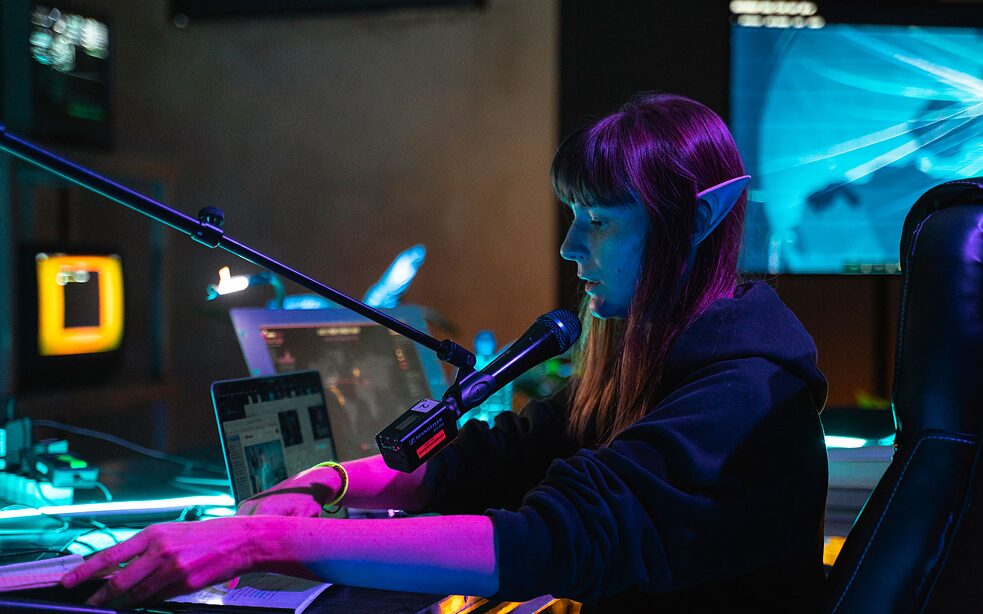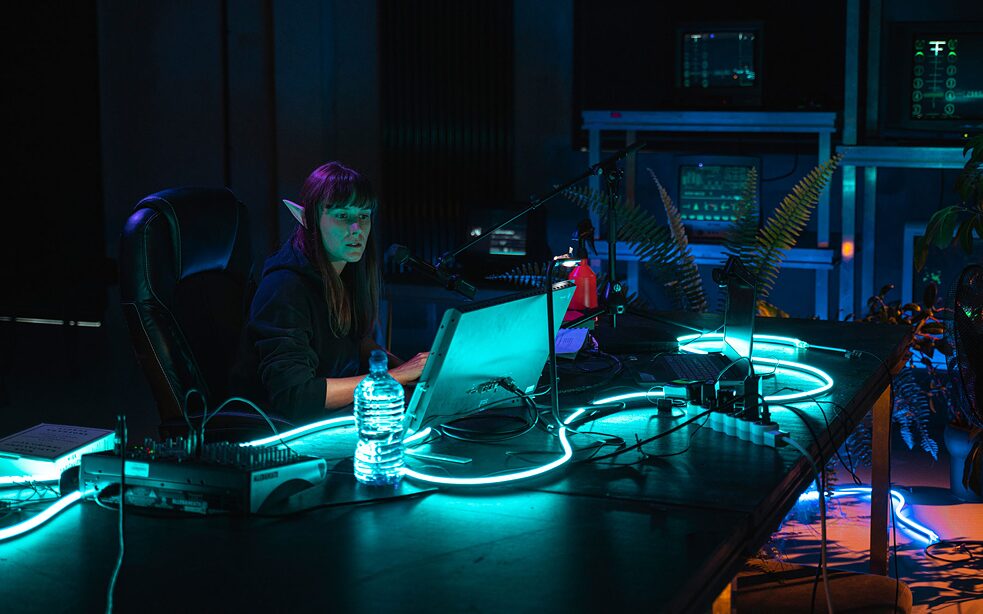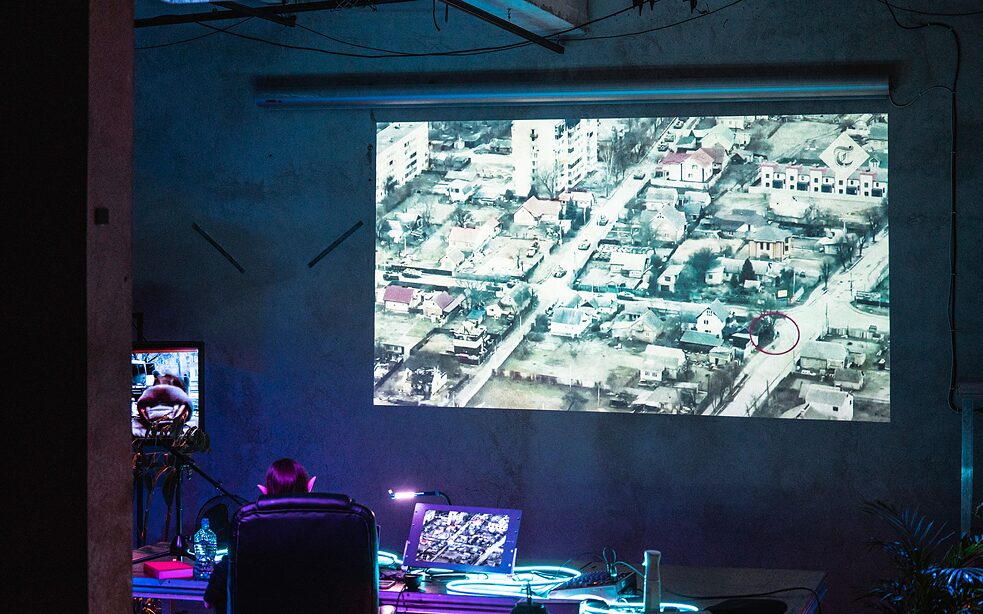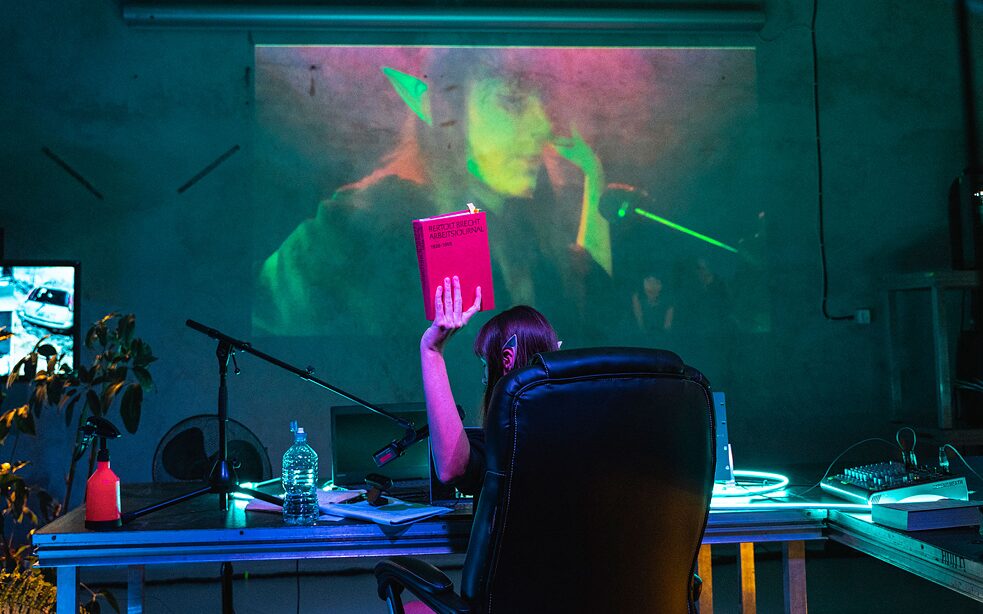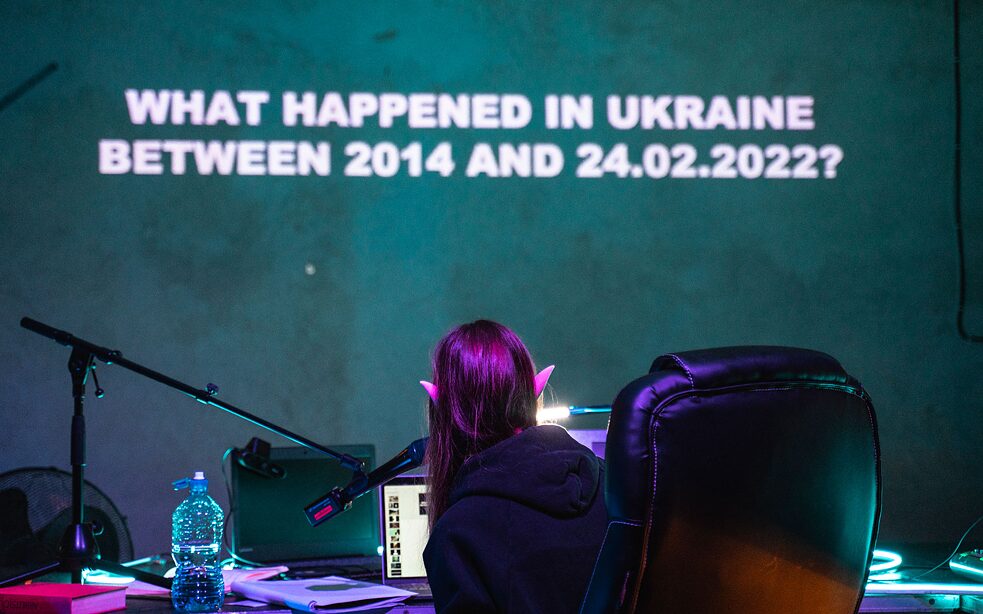Trust and Fake News "Cyber elf" on the digital front

Magda Szpecht is an award-winning Polish theatre director. But since early 2022, she’s been a “cyber elf”, toiling day in, day out to combat Russian disinformation on the Internet. In the following interview, she tells us how it happened.
“Cyber elves” are activists from various countries supporting the Ukrainian war effort on the digital front, both in the area of cyber security and in the fight against fake news, other forms of disinformation and trolling. We work anonymously for the most part, using lots of different identities. The work includes geolocalizing, chronolocalizing and verifying news, photos and videos as well as archiving digital evidence of war crimes and providing technical assistance to people in Ukraine.
What’s your motivation and how does this activism affect your everyday life?
My activism isn’t only about defending the helpless in the face of Russian brutality – it’s also about trying to understand how such a war could happen in the first place in 21st-century Europe. During the first few months, I was working twenty-hour days, but at some point I had to introduce at least a modicum of discipline into my life and even forced myself to do some “digital detox”.
Fake news and cyber wars are major issues lately. But very few people are aware of what’s really been going down on the Internet. What are your experiences?
Here’s an example: On February 24th, 2022, just moments before the Russian ground invasion started, Russian hackers attacked the satellite Internet provider Viasat. Their goal was to disrupt the Ukrainian leadership’s connectivity. The attack got out of control: wind turbines in Germany and Internet connections in the USA were also affected. This goes to show that there’s a parallel war going on in the virtual world.
Can this cyber war be won?
I think Ukraine is winning the info war because it has no reason to produce fake news and because it reacts quickly to events. Russia spends huge amounts of time and money on brainwashing its citizens, but I think its efforts are increasingly ineffective in the West because it’s too easy to catch the Russians lying.
We seem to have lost the art of debate.
With a minimal understanding of rhetoric and the human psyche, we can make any idea popular nowadays. But we seem to have lost the art of argument and debate. Just look at the comments section on any unmoderated website. Authority requires consistency over time as well as the ability to admit mistakes. This is how lost authority can be restored by professional journalists adhering to professional ethics. Science-based arguments can help too. After all, we need some authority that we’re not going to contest. I recently came across the slogan “Truth is not enough” with regard to social media. If we want the attention of an audience in the post-truth era, we need to find a form for our message that appeals to people’s emotions.
What can each and every one of us do about fake news and the war in Ukraine? Should we all become cyber elves?
We should develop our critical and media skills. That includes developing the habit of checking whether the news has an author and who he or she is, who the editors are and what kind of a website it is. A well-informed society is more democratic and more resistant to manipulation. If you’re interested in getting involved in cyber activism, I’d recommend joining the Digital Forces of Ukraine group on Discord and the Bellingcat website for a start. But let’s not confine ourselves to the cyber sphere: let’s talk to the Ukrainians we meet, let’s listen to real people’s stories and help them integrate.
Art can bring people together.
For me, the war was a good litmus test of publicly funded institutions. Within weeks of the invasion, several cultural institutions in Poland had already been converted into hostels for Ukrainian refugees. I thought to myself at the time: Now they’re acting on their declared values. Artists have a responsibility to their community.
What should theatres do in times of war? And what does all this mean for your work in future?
In a situation in which we’re up against war crimes and human rights violations, art can be used to bring people together. In the future, I intend to continue both my activist and artistic work with institutions that are open to new approaches and political debates. When the war’s over, I look forward to getting back to the kind of poetic conceptual theatre I was doing in peacetime.
